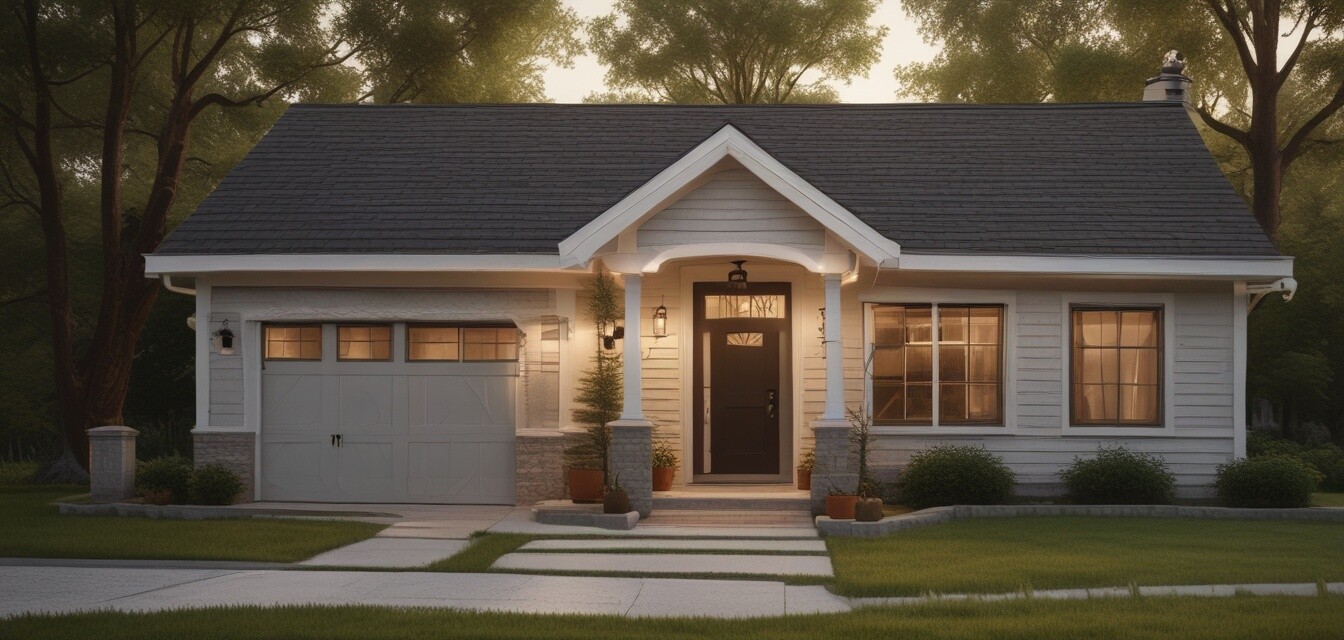
Home security for new homeowners
- Prioritize a solid security system with cameras and alarms.
- Understand the different security camera types available.
- Utilize lighting and landscaping to enhance security.
- Stay informed about local crime statistics.
- Regularly update and maintain your security systems.
As a new homeowner, ensuring the safety and security of your home is paramount. In an era where property crimes are on the rise, it’s essential to implement a robust home security system. This comprehensive guide will help you navigate the best practices for building your home security system from the ground up.
The importance of home security
Home security is more than just a safety precaution; it promotes peace of mind for you and your family. By establishing effective security measures, you can deter potential intruders and feel confident in your safety.
Understanding different types of security options
Before diving into specific products, it's crucial to understand the various security options available for your home. Here we'll cover the essential components you should consider for a comprehensive security system.
1. Security cameras
Security cameras are a vital component of any modern security system. They allow you to monitor activity around your home in real time. Consider the following types:
| Camera Type | Best Use | Pros | Cons |
|---|---|---|---|
| Indoor Cameras | Monitoring interiors | Discreet, continuous monitoring | Limited visibility outside |
| Outdoor Cameras | Perimeter monitoring | Weather-resistant, wide angles | More expensive |
| Doorbell Cameras | Entry point monitoring | Two-way communication, package monitoring | Requires installation |
| Wireless Cameras | Flexible placement | Easy installation, portability | Dependence on Wi-Fi |
2. Alarm systems
Alarm systems are a comprehensive way to ensure intruders are deterred by loud alerts. When researching alarm systems, consider the following:
- Monitoring options (self-monitored vs. professional monitoring).
- Features such as window and door sensors.
- Integration with security cameras and smart home systems.
3. Lighting
Effective outdoor lighting can significantly enhance your home security. Here are a few options to consider:
- Motion-sensor lights: Automatically activate when someone approaches.
- LED floodlights: Provide bright visibility during nighttime.
- Smart lighting: Can be controlled remotely for additional security.
Building your security system
It's time to put together your home security system. Here’s a step-by-step guide to get you started:
- Assess your home: Identify vulnerable areas that need coverage.
- Choose your equipment: Select a combination of security cameras, alarms, and lighting.
- Install systems: Follow manufacturer instructions or hire professionals for installation.
- Test your system: Ensure all components are functional and monitor their effectiveness.
- Review and upgrade: Regularly assess your security needs and upgrade as necessary.
Utilizing smart technology
Integrating smart technology into your home security can enhance your system's efficiency. Consider options such as:
- Smart home devices that allow you to control your alarms and cameras remotely.
- Home automation systems that offer integrated security options.
- Smart door locks to ensure secure access.
Maintaining your security system
A security system is not a one-time installation; it requires ongoing maintenance. Here are some tips for keeping your system in top shape:
- Regularly check batteries in cameras and alarms.
- Review footage periodically to ensure cameras are functioning.
- Update software for smart devices to protect against vulnerabilities.
Pros
- Eases worries about property and family safety.
- Deters criminals from targeting your home.
- Increases property value with installed security systems.
Cons
- Initial costs can be high for comprehensive systems.
- Requires ongoing upkeep and monitoring.
Staying informed
Stay updated about local crime rates and trends. Resources such as community forums and police departments can provide valuable insights. For further reading on current security technologies, visit our article on latest security technology trends.
Conclusion
Building a solid security system is one of the best investments you can make as a new homeowner. By understanding your options and installing an effective system, you can protect your home and loved ones. Always keep in mind that security systems require regular maintenance to function optimally. Take charge of your home security today!
